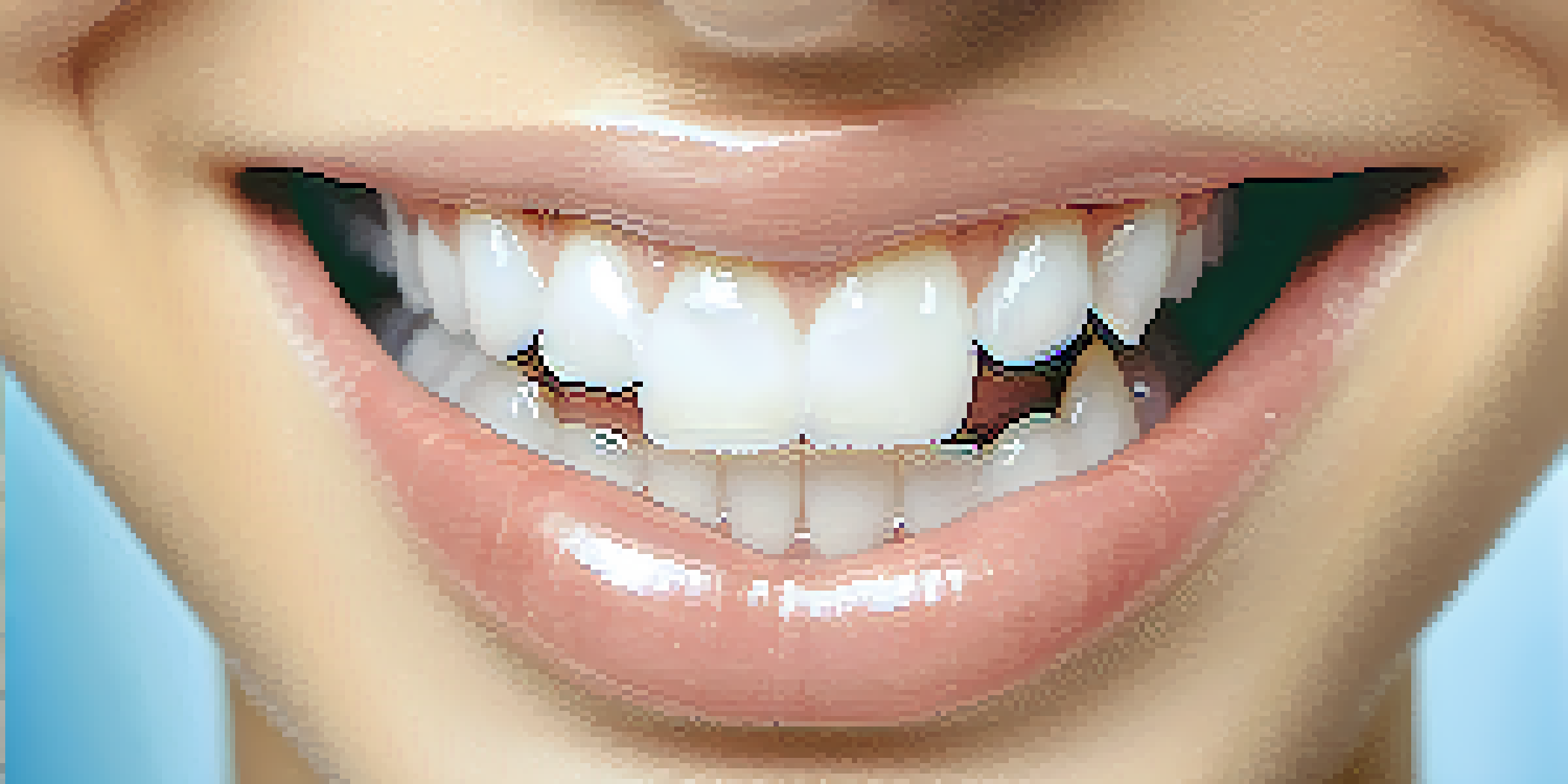The Connection Between Oral Health and Substance Abuse

Understanding the Link Between Oral Health and Substance Abuse
Oral health and substance abuse are intricately connected, with each influencing the other. Poor oral hygiene can lead to serious dental issues, which may drive individuals to seek substances that can temporarily alleviate pain. Conversely, those struggling with substance abuse often neglect their oral health, leading to a vicious cycle. Recognizing this connection is crucial for effective treatment and recovery.
Oral health is a mirror to overall health, and neglecting it can lead to a cascade of problems, particularly in those facing substance abuse challenges.
Research indicates that individuals who abuse substances like alcohol, methamphetamine, or opioids often experience severe oral health problems. These issues can range from tooth decay to gum disease, which not only affects physical appearance but also contributes to emotional distress. The psychological aspect of oral health cannot be overlooked; a healthy smile can boost self-esteem, which is vital in recovery.
Addressing oral health during substance abuse treatment can enhance overall recovery outcomes. By integrating dental care into rehabilitation programs, individuals can tackle both their substance issues and their oral health simultaneously. This comprehensive approach fosters better long-term health and helps break the cycle of addiction.
How Substance Abuse Negatively Impacts Oral Health
Substance abuse can cause a range of oral health problems, including dry mouth, tooth decay, and gum disease. For instance, alcohol consumption can lead to decreased saliva production, which is essential for neutralizing acids and washing away food particles. This dry mouth can create an environment ripe for cavities and infections, exacerbating existing dental issues.

Certain drugs, like methamphetamine, have a particularly devastating impact on oral health, leading to a condition commonly referred to as 'meth mouth.' This condition is characterized by severe tooth decay, gum disease, and even tooth loss. The combination of poor hygiene, dietary changes, and the drug's chemical composition fuels this alarming state of oral health.
Oral Health Affects Recovery Outcomes
Addressing oral health issues during substance abuse treatment can significantly enhance overall recovery results.
Moreover, the neglect of dental care often follows substance abuse. Individuals may prioritize obtaining substances over maintaining their dental hygiene, resulting in a downward spiral of oral health deterioration. This neglect not only affects physical health but can also lead to feelings of shame and isolation, further entrenching the addiction.
The Role of Oral Health in Recovery Programs
Incorporating oral health care into recovery programs can be a game-changer for many individuals. Access to dental services allows patients to address their oral health issues head-on, reducing physical pain and improving overall well-being. By prioritizing oral hygiene, individuals in recovery can also enhance their self-esteem, which is crucial for staying on track with their recovery goals.
The road to recovery is built on the foundation of self-care, and that includes taking care of your teeth and gums.
Many rehabilitation programs are starting to recognize the importance of a holistic approach that includes dental care. This can range from routine check-ups to education on proper oral hygiene practices. By equipping individuals with knowledge and resources, these programs can help them maintain their oral health long after treatment ends.
Peer support can also play a significant role in promoting oral health within recovery communities. Sharing experiences and tips on maintaining a healthy mouth can create a supportive environment that encourages individuals to take pride in their oral hygiene. This sense of community can foster accountability and motivate individuals to prioritize their health.
Preventive Dental Care and Substance Abuse
Preventive dental care is essential for anyone, but especially for those recovering from substance abuse. Regular dental visits, cleanings, and screenings can help catch potential issues before they escalate. Establishing a routine can also instill a sense of discipline, which is beneficial for recovery efforts.
Education on oral hygiene practices, such as brushing and flossing, plays a pivotal role in prevention. Individuals should be aware of the importance of maintaining their oral health to support their overall recovery. Simple habits can make a significant difference in avoiding complications associated with substance abuse.
Substance Abuse Harms Dental Health
Substance abuse leads to serious oral health problems like dry mouth and tooth decay, creating a cycle of neglect and deterioration.
Moreover, preventive care can help alleviate the anxiety associated with dental visits, which is particularly important for individuals who may have neglected their oral health in the past. Building a positive relationship with dental care can contribute to improved mental health, reinforcing the idea that taking care of one's mouth is just as important as taking care of one's body.
The Importance of Nutrition for Oral Health
Nutrition plays a crucial role in maintaining oral health, especially for those recovering from substance abuse. A balanced diet can bolster the immune system, promote healing, and support overall well-being. Foods rich in vitamins and minerals, particularly calcium and vitamin D, are essential for strong teeth and gums.
Conversely, a diet high in sugar and processed foods can worsen oral health issues. Individuals recovering from substance abuse may gravitate toward these unhealthy foods due to cravings or emotional eating. Educating them on healthier choices can help them make better food selections, further supporting their oral health.
Incorporating foods that promote oral health, such as crunchy fruits and vegetables, can also aid in maintaining dental hygiene. These foods can naturally clean teeth and stimulate saliva production, which protects against decay. Encouraging individuals to prioritize nutrition can support their recovery journey from multiple angles.
The Psychological Aspects of Oral Health and Substance Abuse
The psychological impact of oral health cannot be underestimated, particularly for those struggling with substance abuse. A healthy smile can significantly boost self-confidence, aiding individuals in their recovery process. Conversely, poor oral health can lead to feelings of shame, social withdrawal, and a decline in mental health.
Addressing emotional and psychological barriers related to oral health is vital in recovery. Many individuals may feel embarrassed about their dental condition, which can hinder their willingness to seek help. Providing a supportive environment can encourage them to take action and prioritize their oral care.
Nutrition Supports Oral Health Recovery
A balanced diet rich in essential nutrients is crucial for maintaining oral health, especially for those recovering from substance abuse.
Therapists and counselors can play a crucial role in helping individuals navigate the emotional aspects of their oral health. By incorporating discussions about self-image and dental health into therapy sessions, individuals can work through their feelings and develop healthier habits. This holistic approach fosters overall well-being, enhancing recovery efforts.
Building a Support System for Oral Health and Recovery
Creating a support system that emphasizes both oral health and recovery can be immensely beneficial. Friends, family, and healthcare providers can work together to encourage healthy habits and regular dental visits. This type of support can significantly enhance the recovery process, providing individuals with the motivation they need to prioritize their health.
Support groups focused on recovery can also incorporate discussions about oral health, sharing tips and resources. By fostering a community that openly discusses dental care, individuals can learn from one another and develop healthier habits together. This camaraderie can alleviate feelings of isolation and promote a sense of belonging.

Ultimately, building a robust support system can empower individuals to take charge of their oral health and recovery. By surrounding themselves with encouraging and knowledgeable people, they can tackle the challenges of both substance abuse and oral health with confidence. This interconnected approach paves the way for lasting change and improved well-being.